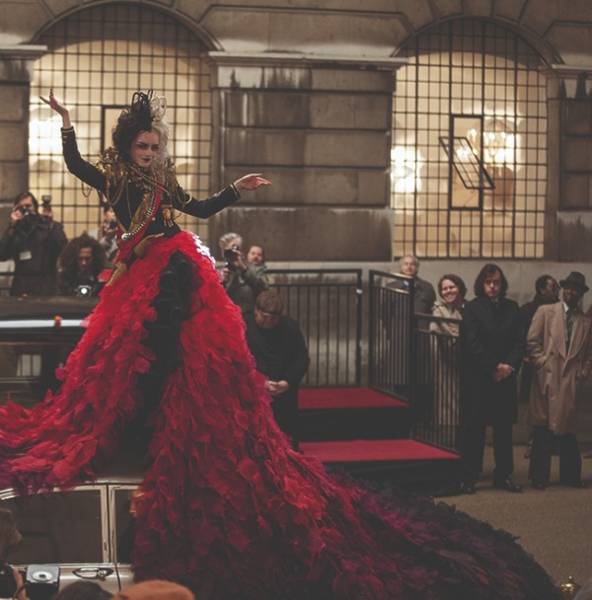"A little ping in the great wide silent world." In 'Segue', the curtainraiser to this vast and accomplished collection, the heroine Jane Sexton is defining the sonnet. "You make visible a sudden fluidity to the form, a slash of noise, but a carefully measured splash that's saved from preciosity by the fact that it comes from within the body's own borders; one voice; one small note extended, and then bent; the bending is everything, the volta, the turn, and also important is where it occurs within the sonnet's 'scanty plot of ground' to quote old Wordsworth."
It's an image that perfectly captures Shields' own delicate craft, just as 'Segue' encapsulates her two dominant themes: the bewildering process of ageing and the art of fiction.
These are stories of nice people people who "are patriotic in a vague and nontheoretical way, and good mature citizens who pay their taxes and vote and hold opinions on gun legislation and abortion." People like Jane and Max Sexton in 'Segue': "A man and a woman of similar height, both in their middle sixties, both slightly stooped you'd hardly notice unless you were looking and dressed in bright colours."
Shields specialises in the forensic dissection of marriage slicing into its flesh to expose the routine small accommodations, adjustments, shadows. One woman fears her husband's approaching retirement: "What will he do with himself, a man with his everpresent tide of irascibility?"
"When two people live and work under the same roof," observes another, "the solitary nature of consciousness is frayed with a million threads of incalculability, and one of those threads is a decision to avoid emotional dissonance and preserve for one's self certain areas of privacy."
Barbara, in 'Milk Bread Beer Ice', reflects on the "disobliging exchange between herself and her husband of thirtythree years, which is as random and broken as the geological rubble she dully observes from the car window." We enter the home of Robert and Lila in 'Others' who "know after all this time about love that it's dim and unreliable and little more than a reflection on the wall."
Interspersed between such piercing points of pain and disappointment are moments of epiphany. In 'Mirrors', a husband watches his wife reading in bed, almost as if he's looking at a stranger. "And then she had turned and glanced his way. Their eyes held, caught on the thread of a shared joke: the two of them at this moment had become each other, at home behind the screen of each other's face. It was several seconds before he was able to look away."
Often these lightning portraits are of women coming to terms with the loss of youth and beauty. They are women making compromises, gently mourning their earlier selves, raising their voices cheerfully to ward off the darkness.
"Are we then starting to take responsibility for our own dying bodies?" wonders Jane Sexton. "It seems that each of us will have to do this on our own." It's a poignant reminder of Shields' own recent death, as is the somewhat acid 'Flitting Behaviour', in which the grizzled misogynist author Meershank considers an affair with his editor while his wife is wasting away upstairs. He gets his comeuppance in a later story, which finds him now married to the editor and suffering writer's block.
Shields is obsessed with the lives and habits of writers. Sexton is a poet and her husband a novelist who writes in a shabby office above a hardware store. In 'New Music' a writer gets up an hour before her husband and children to work at her computer in a makeshift sewing room, the table a cheap plywood door laid on trestles.
In 'The Scarf' a precursor to the novel Unless a middleaged woman's delight at the surprise success of her first novel is blunted by the reviews that dismiss it as a mere romance for women: "Probably young working girls gnawed by loneliness and insecurity." Then there is the glorious EdithEsther, now in her eighties and fulminating at the relentless attempts of her biographer to unearth some hidden religious fervour in her prolific work, despite her protestations that she is an atheist.
Ultimately, the central focus of these stories is writing itself. In 'Absence', a woman sits at her word processor to begin a story only to discover that one of the vowels on the keyboard is broken. And she finds that without it her power has gone.
"Because the flabby but dependable gerund had dropped through language's trapdoor, gone. Whole parcels of grammar, for that matter, seemed all at once out of reach, and so were those bulky doorstop words that connect and announce and allow a sentence to pause for a moment and take on fresh loads of oxygen. Vocabulary, her wellloved garden, as broad and takenforgranted as an acre of goldenrod, had shrunk to a square yard, and she was, as never before, forced to choose her words, much as her adored greataunt, seated at a tea table, had selected sugar lumps by means of a carefully executed set of tongs."
'The Metaphor is Dead Pass It On' is a brilliantly sustained rant against the excessive use of metaphor, written entirely in excessive metaphors. It is a literary manifesto as incisive as Jane Sexton's favourite quotation, from Leonardo da Vinci: "Art breathes from containment and suffocates from freedom."
That is the principle informing every one of these exquisite stories making them perfectly sculpted insights which celebrate and epitomise the act of creation. When conjuring up the graft of writing, the exactitude of it, the force of each word and the imperative to get it right, Shields is making her bid for immortality. And achieving it.

